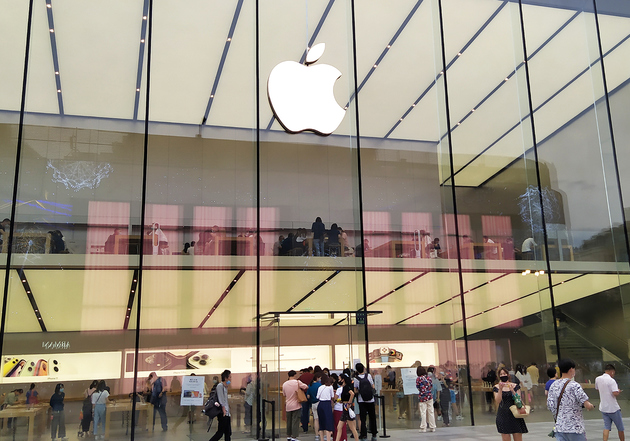
Photo/Zhang Jian (NBD)
On the evening of May 7th, Beijing time, Apple held its “Let Loose” themed online event. In a brief presentation lasting less than 40 minutes, Apple made significant updates to its iPad lineup, introducing 11-inch and 13-inch LCD iPad Air models (the largest iPad Air to date), the Apple Pencil, and new 11-inch and 13-inch OLED iPad Pro models. Notably, this marks the first time Apple’s iPad Pro is equipped with an OLED display, signifying a major shift in display technology preferences among leading manufacturers in the tablet market.
Ross Young, president of DSCC (a subsidiary of Counterpoint Research), believes that “Apple’s shift to OLED, as a dominant supplier in the tablet market, will drive significant growth in the OLED tablet market in 2024.”
Apple introduced the new iPad Pro/Air models at the event. The iPad Pro, as Apple’s flagship tablet, always garners attention with each update. It comes in two screen sizes, 11 inches and 13 inches, and is equipped with the latest M4 chip. In recent years, Apple has continuously driven the development of the iPad product line by equipping iPads with high-performance chips on par with Macs.
The M4 chip still uses TSMC’s 3nm process technology, and its main upgrade over the M3 is the neural network engine. This enhancement will speed up machine learning tasks, including video analysis, voice recognition, and image processing, significantly boosting AI performance.
Moreover, the new iPad Pro models are the first to feature OLED screens. Unlike LCDs, OLEDs do not require backlighting, allowing for a thinner design, and they can achieve wider viewing angles and higher contrast ratios, making them suitable for high-quality video and dynamic images. This has made OLED the preferred choice for smartphones, high-end TVs, and wearable devices. With the OLED screen, Apple has dubbed the new iPad Pro “the thinnest Apple product ever.”
Himani Mukka, a research manager at Canalys, stated: “After a challenging year in 2023, the tablet industry has had a strong start in 2024, with further relief expected in the second half of the year. Despite consumers’ long-term cautious stance on spending for tablets, manufacturers remain confident. New players continue to invest in the field, and leading manufacturers keep innovating, trying to spark consumer interest and drive new use cases.”
However, IDC believes that competition from personal computers and smartphones may impact the tablet market’s prospects, while the introduction of artificial intelligence features could give tablets potential advantages similar to other device types.
The recent release of the new iPad series indicates a new direction for the iPad product line, focusing on AI. During Apple’s Q1 earnings call this year, CEO Tim Cook made the rare revelation that the company is actively developing generative AI software features. These will be introduced in iOS 18 with new Siri capabilities supported by large language models. Moreover, some cutting-edge generative AI features may be exclusive to the iPhone 16 model and are expected to be available to customers “later this year.”


 川公网安备 51019002001991号
川公网安备 51019002001991号





